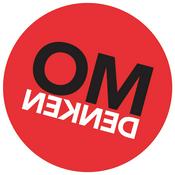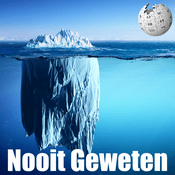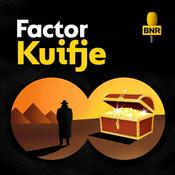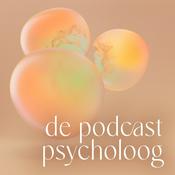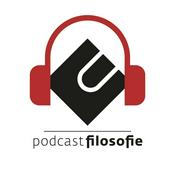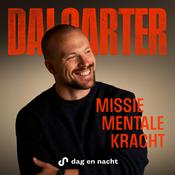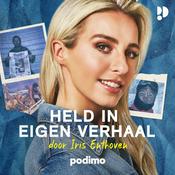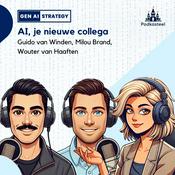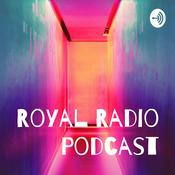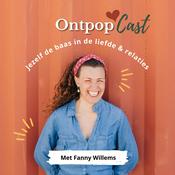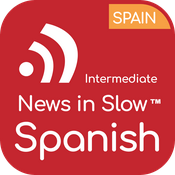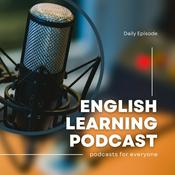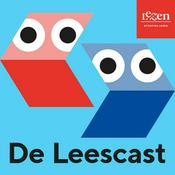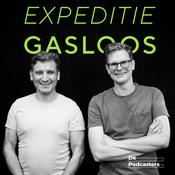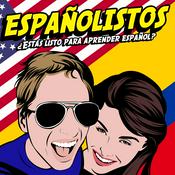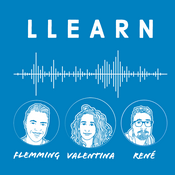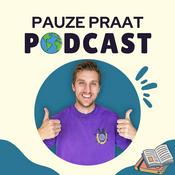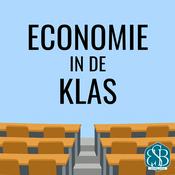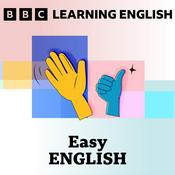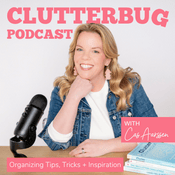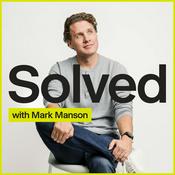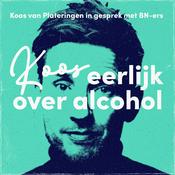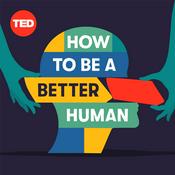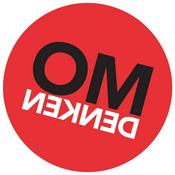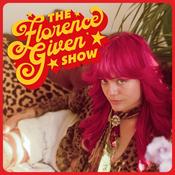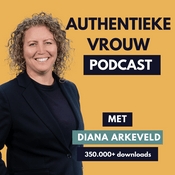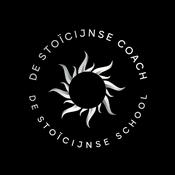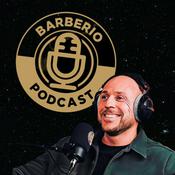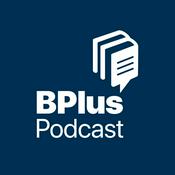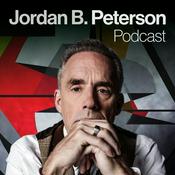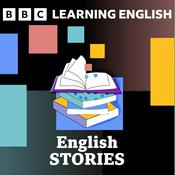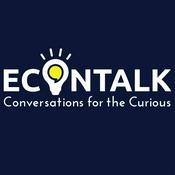21 afleveringen

Rhizome of Relations: Unfolding the Potential of the Modern Museum
18-12-2025 | 1 u. 13 Min.
In the highly regulated spaces of most museums today, is it possible to enact a different type of experience, one that is relational, participatory, and even aspirational? Can the public be just as important as the artist and curator in the process of making an aesthetic experience meaningful? Museum director Karen Grøn believes so. And she has made it her mission to make the Trapholt Museum of Art and Design a refreshingly novel site of co-creation, where the visitors and guards are just as instrumental as all the other moving parts. She sees art as a moving rhizome of relations and materialities — an “infrastructure of meanings” — and the museum as offering a frame which opens a piece of art to the question of why. Far from being simplistic, her process is always theoretically informed, whether by enaction itself or Hartmut Rosa’s theory of resonance, and it coaxes the visitor into experience itself, rather than telling them about the experience they ought to have. The result is a space in which the community feels a strong personal tie to the museum, almost as a second home, in which they can “unfold their potential for participating in the world.” And that, if anything, is what Karen aspires to, and why she thinks this enterprise remains as vital and relevant as ever. Karen Grøn is Museum director and curator of collaborative art projects at the Trapholt Museum of Modern Art, Craft and Design in Kolding, Denmark. She explores and researches how to make the arts accessible and relevant to multiple citizens through engagement and exchange. Karen has a master’s degree in Aesthetics and Culture from the University of Aarhus and a master’s in public management from the University of Southern Denmark. In 2005-2006, Karen was a guest researcher at the University College London, and then in 2018-2019, at the Tate Museum.If you’d like to read a bit more about her unique approach, you can peruse an article she contributed to the Tate Museum website: The Art Museum and Psychological Well-being. You can also hear her speak at the 2020 EU Presidency Museum Conference, on “Museums and Social Responsibility - Values revisited”. Finally, we'd encourage you to have a look at the fourth semester of Core Enaction, in which Karen was in dialogue with enactive researcher and artist Shay Welch. For more information about Trapholt’s current exhibition, “Feel Me,” which Karen mentions in our conversation, you can visit the Trapholt Museum Website. Hosted on Acast. See acast.com/privacy for more information.

"Ambush of Amazement": Ethics, Meaning, and Music with Legendary Poet Jane Hirshfield
20-11-2025 | 1 u. 49 Min.
In the words of Jane Hirshfield, “science exists to try to answer the questions that can be answered. Poems exist to answer the questions that cannot be answered and yet require of us some response.” Her poems do just this, but with the dexterity and finesse of a Zen koan. Jane is an unusual voice in the landscape of contemporary poetry, in that she has spent much of her life as a serious practitioner of Zen Buddhism, bringing that particular ethos of attention to her inner life, but also to issues of social and environmental justice. Known the world over for her ten collections of poetry and several more collections of essays and translations, her voice can just as easily be found in The New York Times or The Guardian as on a stage before 50,000 people in the March for Science. In this conversation, Jane generously took us on a tour of her many influences, practices, and ponderings: from her introduction to Gregory Bateson and the Lindisfarne Association, to what she sees as the role of poetry in democracy and society, to her deeply kinaesthetic process of making poetry, to the intimate crosstalk between poetry and science, and, finally, to what we both see as being the ‘ethics of poetry’. Jane has spoken of her poems as “an enactment of a struggle to say yes to that which we would prefer to say no to” — a statement which seems as poignant as ever, and indicative of how capacious her mind and practice are. We spoke about the uncanny power that poetry has to convey beauty and grief in the same breath, and how to embrace what she calls the ‘ambush of amazement’ in times that might otherwise compel us to go numb. Ultimately, the conversation was an enactment of what it means to stay awake and tender in a world of such unutterable complexity. More about Jane Hirshfield: Writing “some of the most important poetry in the world today” (The New York Times Magazine), Jane Hirshfield is one of American poetry's central spokespersons for concerns of the biosphere, the values of interconnection, and the alliance of poetry and the sciences. A practitioner of Soto Zen for fifty years, she received lay-ordination in 1979 in the lineage of Shunryu Suzuki Roshi. Hirshfield's honors include fellowships from the Guggenheim and Rockefeller Foundations, the Poetry Center Book Award, the California Book Award, and Columbia University's Translation Center Award. In 2024 she received the Zhongkun International Poetry Prize, China’s premier independently-given award for a world poet. Author of the recently published The Asking: New and Selected Poems (US, Knopf, 2023; UK, Bloodaxe, 2024); nine previous poetry collections; two now-classic collections of essays on art's infrastructure and craft, Nine Gates and Ten Windows; and four books presenting world poets from the deep past, she has presented at festivals and universities worldwide and her work has been translated into eighteen languages. A 2026 Visiting Fellow and Poet in Residence at Harvard Divinity School and former chancellor of the Academy of American Poets, she was elected in 2019 into the American Academy of Arts & Sciences.For anyone who missed Jane’s singular Mind Matters talk in February 2025, you can view it on our YouTube channel at any time. ***Please follow our work and consider donating to Mind & Life Europe or joining our MLE Friends community! Hosted on Acast. See acast.com/privacy for more information.

Season 3 Trailer: Introducing "The Enactive Fold"
20-11-2025 | 5 Min.
Welcome back to the Mind & Life Europe Podcast — "The Enactive Fold" — in which you'll be hearing from thinkers, researchers, and creators, whose voices and work rhyme with the enactive approach to mind, life, and experience. To learn more, visit our website and do consider becoming an MLE Friend! Thank you for listening; we hope you enjoy. Hosted on Acast. See acast.com/privacy for more information.

"The Somatic Dance: Curating a Life in the Midst of Breakdown"
15-5-2025 | 1 u. 27 Min.
What does enacting the world look like for organisms who are not thriving, but merely surviving? What happens when we don’t have access to the activities that are organism-defining? How to curate a life from the edge, when one is cast out of the relational web because of illness or disability? These are questions that Professor Shay Welch is asking herself today, and not because the questions have a theoretical draw, but because, as she shares in this candid conversation, these questions have become the throbbing centrepiece of her daily life. At the time we spoke, Shay was facing a diagnosis of an incredibly rare neurodegenerative disease (3 in one million), and a possible diagnosis of other conditions, and in one year’s time, she saw her life get turned on its head. Exploring this journey together, we discussed the epistemic injustices facing women and marginalized persons in medicine and academia, what is needed to sustain a minimal integrity of the organism when the body breaks down, the necessary conditions for participatory sense-making to happen well between two people, the deeply political nature of any epistemological framework, not least the enactive framework, and the ‘somatic dance,’ as Shay puts it, of trying to figure out how much of the world is moving you and how much of you is moving with the world when the world seems to be moving against you. Shay’s cutting wit and unflinching realism was a refreshing antidote to many of the world’s harrowing displays of sophistry, authoritarianism, and bigotry at the moment, and her observations helped to shed light on how trust in the body, and in first-person experience more broadly, is a powerful seed of resistance for these times. It was not a conversation that attempted to enact any illusion of a happy ending, but where we ended seemed a robust and generous teaching about how to begin making sense with the world, moving closer to solidarity. More about our guest here.TW: There is a mention of suicide near the end of this episode. ***Please follow our work and consider donating to Mind & Life Europe or joining our MLE Friends community! Hosted on Acast. See acast.com/privacy for more information.

"Knowing-in-Connection: Improvisation as Praxis for Life and Art"
17-4-2025 | 1 u. 36 Min.
This conversation was a rich and potent gathering of creative minds, whose lives and work have long orbited practices of improvisation, co-creation, and participatory sense-making: cellist and mindfulness teacher Barbara Bogatin, atypical choreographer and dancer Luc Petton, pianist and teacher of teachers Dr Scott Brewer, and our wonderful co-host from Core Enaction, Semester 4, Dr Letícia Renault. From beginning to end, we dwelled with the many qualities that improvisation has in common with participatory sense-making: listening, becoming, and letting be; play, surprise, and épochè; interdependence, kinship, and attunement. The questions that emerged in the conversation turned out to be many of the same questions that concern all living beings who participate in the intricate process of making worlds together. How can we cultivate the fine balance between effort and emergence, making happen and letting happen, agency and suspension? Is there such a thing as a pedagogy of creativity and intuition? What new grammar, syntax, and vocabulary does improvisation afford us for moving through the world? How can we maintain a connection to our interiority while also expressing art publicly? How do we arrive in a zone of ‘pure communication’? What might be said for the generative possibilities of breakdown and mistakes? Might we take a playful attitude toward our fallacies? Can we use them to disrupt the mechanisms of habit?What is the relationship between contemplative practice and creativity? What do creative practices, such as dance, music-making, and language teaching, have to do with our ethical way of being in the world? Could certain improvisational attitudes — such as decentring the self or suspending judgment — help us interact across differences? How does improvisation affect our sense of intersubjectivity, and our ability to participate in a collective organism? How do these practices inhabit the body? What can be said of the importance of touching and being touched, of being changed by the imprint of others? How can we activate the “full orchestra of the body” (Luc Petton)?More about our guests: Barbara Bogatin, Dr Stephen Scott Brewer, Luc Petton, and Dr Letícia Renault. A couple examples of Luc Petton's work: 'Light Bird' teaser and 'Swan' teaser.***Please follow our work and consider donating to Mind & Life Europe or joining our MLE Friends community! Hosted on Acast. See acast.com/privacy for more information.
Meer Onderwijs podcasts
Trending Onderwijs -podcasts
Over Mind & Life Europe Podcast
Luister naar Mind & Life Europe Podcast, Omdenken Podcast en vele andere podcasts van over de hele wereld met de radio.net-app
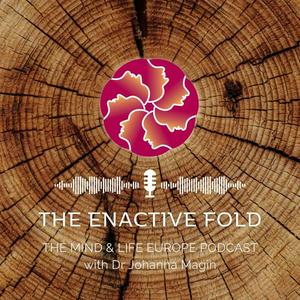
Ontvang de gratis radio.net app
- Zenders en podcasts om te bookmarken
- Streamen via Wi-Fi of Bluetooth
- Ondersteunt Carplay & Android Auto
- Veel andere app-functies
Ontvang de gratis radio.net app
- Zenders en podcasts om te bookmarken
- Streamen via Wi-Fi of Bluetooth
- Ondersteunt Carplay & Android Auto
- Veel andere app-functies


Mind & Life Europe Podcast
download de app,
luisteren.
